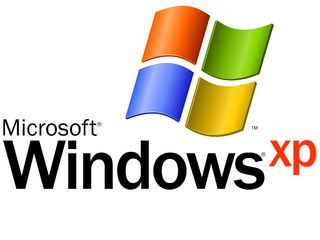Windows XP support for Security Essentials extended to July 2015
However, software giant insists extended support Windows XP will end in April 2014.

Microsoft has backtracked on plans to withdraw its free Windows XP anti-malware tool when extended support for the aged operating system ends in April.
As reported by IT Pro last week, the software giant originally planned to pull support for Microsoft Security Essentials on 8 April 2014, but has now extended the cut-off date to 14 July 2015.
Microsoft confirmed the move in a blog post, where it also reiterated that Windows XP will not be treated to a similar stay of execution.
Microsoft really does need to bite the bullet on this one it should remove all support for XP at a set date no paying for extended support, no support for some bits of it, and no exceptions.
"Microsoft has announced the Windows XP end of support date of April 8, 2014. After this date, Windows XP will no longer be a supported operating system," the post states.
"To help organisations complete their migrations, Microsoft will continue to provide updates to our anti-malware signatures and engine for Windows XP users through July 14, 2015."
"This does not affect the end-of-support date of Windows XP, or the supportability of Windows XP for other Microsoft products, which deliver and apply those signatures," it added.
Microsoft also confirmed that enterprise support for System Centre Endpoint Protection, Forefront Client Security, Forefront Endpoint Protection and Windows Intune running on XP will continue until July 2015 also.
Get the ITPro. daily newsletter
Receive our latest news, industry updates, featured resources and more. Sign up today to receive our FREE report on AI cyber crime & security - newly updated for 2024.
The move has prompted criticism that, after years of warning about the dangers of sticking with XP beyond April 2014, Microsoft is sending users mixed signals.
Speaking to IT Pro, Clive Longbottom, service director at market watcher Quocirca, said Microsoft should not be extended support for any XP products if it's serious about getting people to upgrade.
"Microsoft really does need to bite the bullet on this one it should remove all support for XP at a set date no paying for extended support, no support for some bits of it, and no exceptions.
"It should point out that many manufacturers will not supply parts for cars that are over 10 years old...[and] point out that Windows 7 will run on pretty much any PC or laptop that can run XP," he said.
There is also no good reason for businesses to stick with XP once extended support ends, Longbottom added, but the cost of retraining staff and upgrading systems is holding people back.
"For a large number of XP users, it is a mixture of inertia from the IT people (in which case, the business should be coming down on them like a ton of bricks) or the maximisation of margin from companies the management and upkeep of the desktops is outsourced to," he explained.
"Old skills can be cascaded down to XP sites without the need for continuous re-training, and money can be made from layering on more and more extras for security, for running apps that XP struggles with and so on. It really is time that the main board took IT to task over any XP usage."
Most Popular





